Before diving fully in the everyday reality of the new year, I decided to treat myself to the first field radio adventure of 2020. Since the beginning of the week, I followed the forecast that promised sunny and decently warm weather for the weekend – a perfect recipe for some fun in a local park!
However, closer to today I was up for a surprise: expectation of high winds following a cold front that swept through the area was rising, and in the early morning the National Weather Service issued a Wind Advisory till Sunday afternoon.
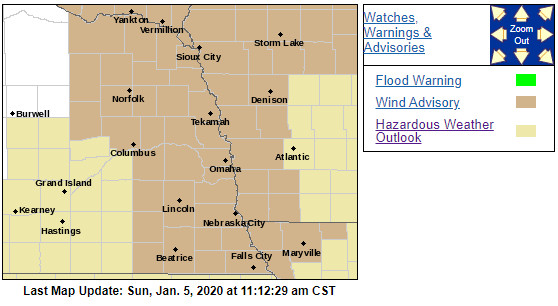
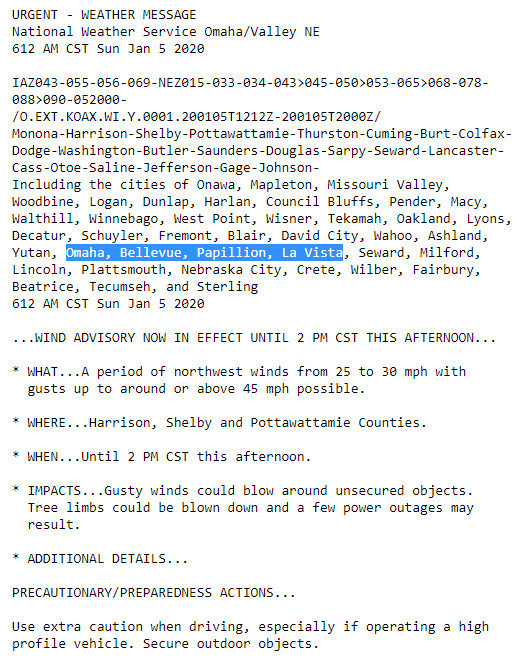
In spite of the forecast sustained winds of 25-30 mph, with gusts all the way up to 45 mph, I had to dial back to the original configuration of my full-power portable HF station. In the past 4-5 months, I usually used a longer 17-foot whip with my Super Antenna, instead of its stock titanium whip. So far it worked very well for me and has shown somewhat better results. However, I did have issues using it in high winds – be it from a recent thunderstorm system, or from a front passing through the area. Thus, with the stock whip packed, I headed out to Walnut Creek Recreation Area (K-4036 in the Parks on the Air program).
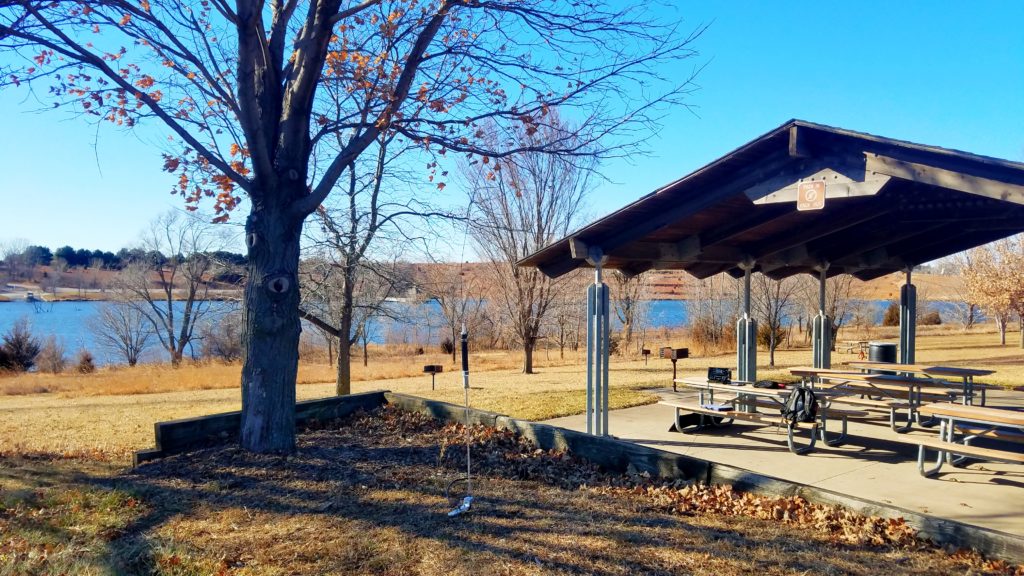
Looking at the POTA spotter page in the morning, I was getting ready for some good action on the air once I get set up in the park. Of course I remembered how deceptive was the sunny warm afternoon of my last activation of 2019, and how I was freezing closer to sunset, trying to respond to as many calling stations as I could. Thus, a couple extra layers were an important factor of success in today’s weather.
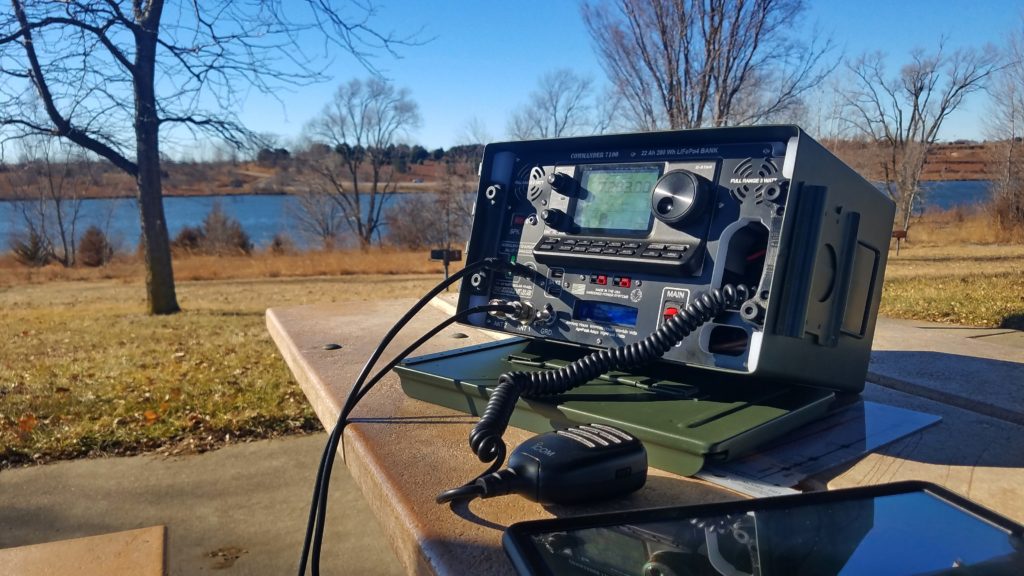
Another thing learned from the previous experience – 40 meters is way more prolific right now, thus this was the band that I started with right after deploying my station. I didn’t have quite a pileup like last time, but it was a steady stream of hunters calling all the time. In fact, I maybe called CQ just a couple times during 50 minutes. Overall I logged 51 contact on 40 m, including 3 park-to-park ones. What’s interesting – I had QSOs with three stations really close to myself, two in Omaha and one in Blair, just ~40 mi north!
After taking a short 10-minute break to stretch my legs, I switched to 20 meters. Like last time, it was quite slow, and I decided not to spend too much time there. I called CQ for about 15 minutes, and then kept spinning the dial looking for other activators for another 10-15 minutes. This way, I added 8 more contacts to my log (with two more park-to-park QSOs), and went QRT.
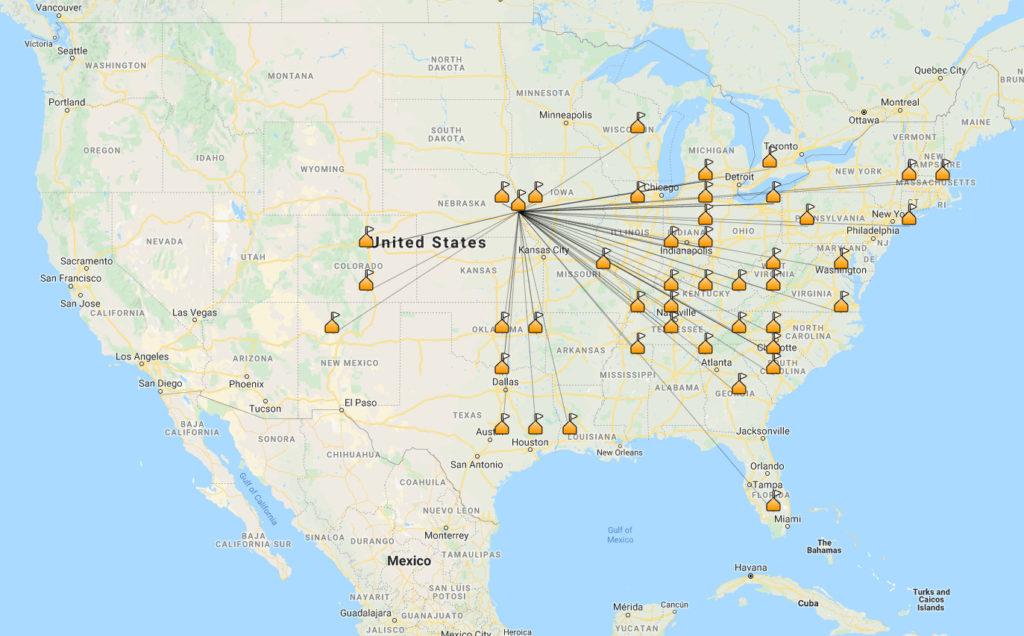
Interestingly, propagation was not on my side in the westward direction today. I heard some other operators, both activators and hunters, discussing the same thing – as well as that it apparently “opened up” to the west later in the day.
In summary, I logged 59 contacts on both 20 and 40 meters, including 5 park-to-park QSOs. I spent approximately 75 minutes on the air, and my battery meter showed the power consumption of 5.56 Ah at the end of today’s operation. This was the park #25 for me, so sort of a milestone. Hope not to wait too long till next time!